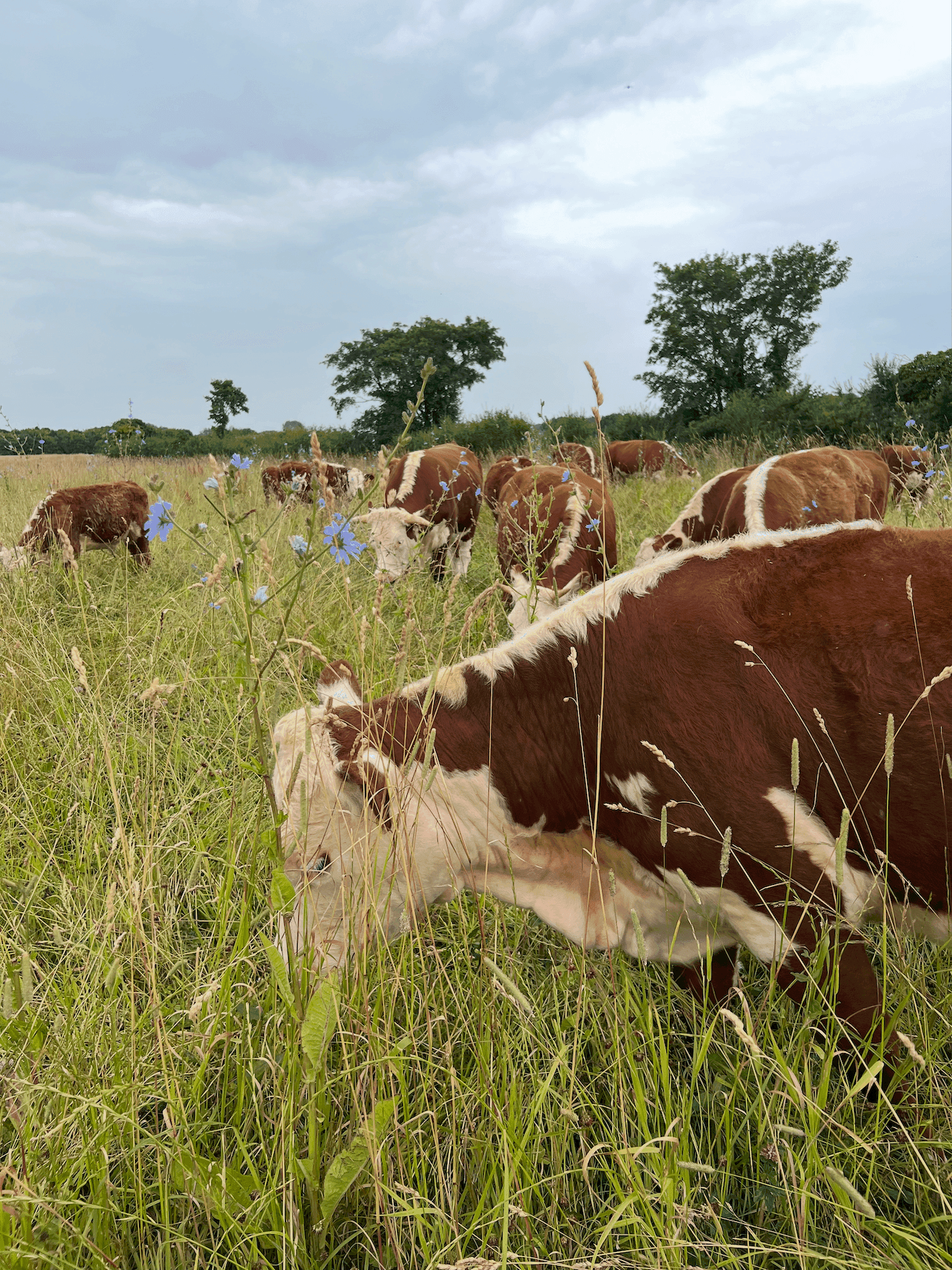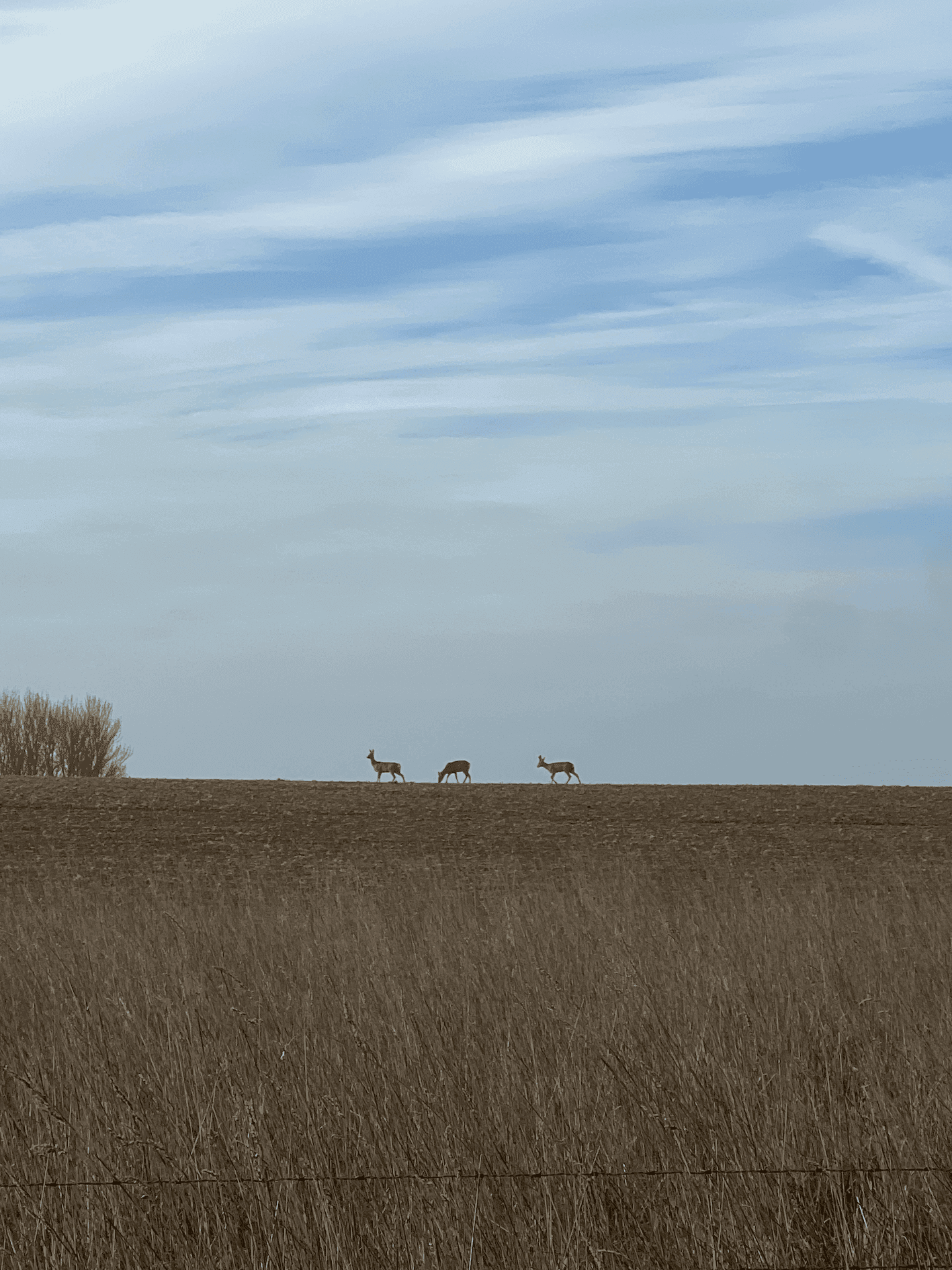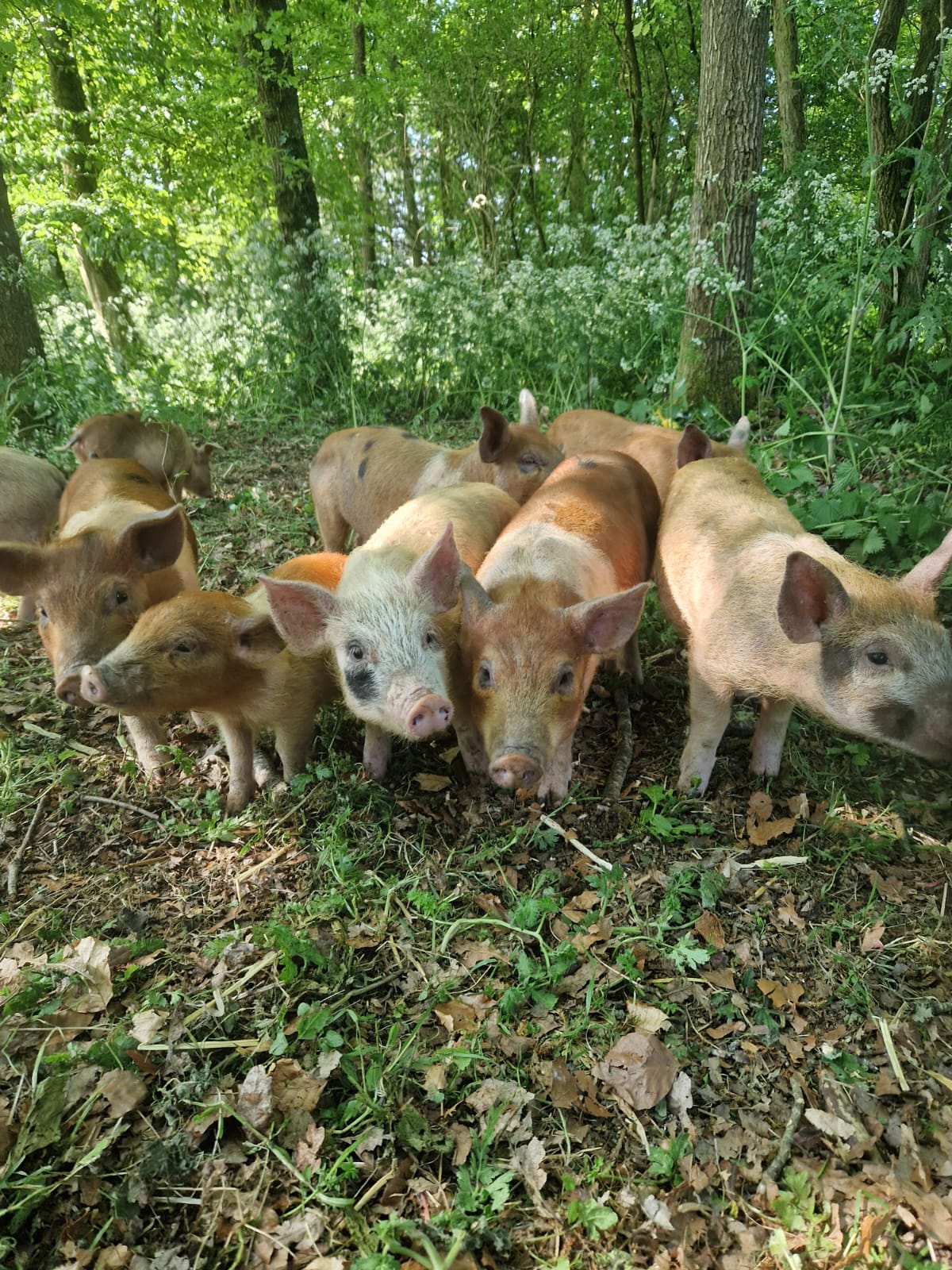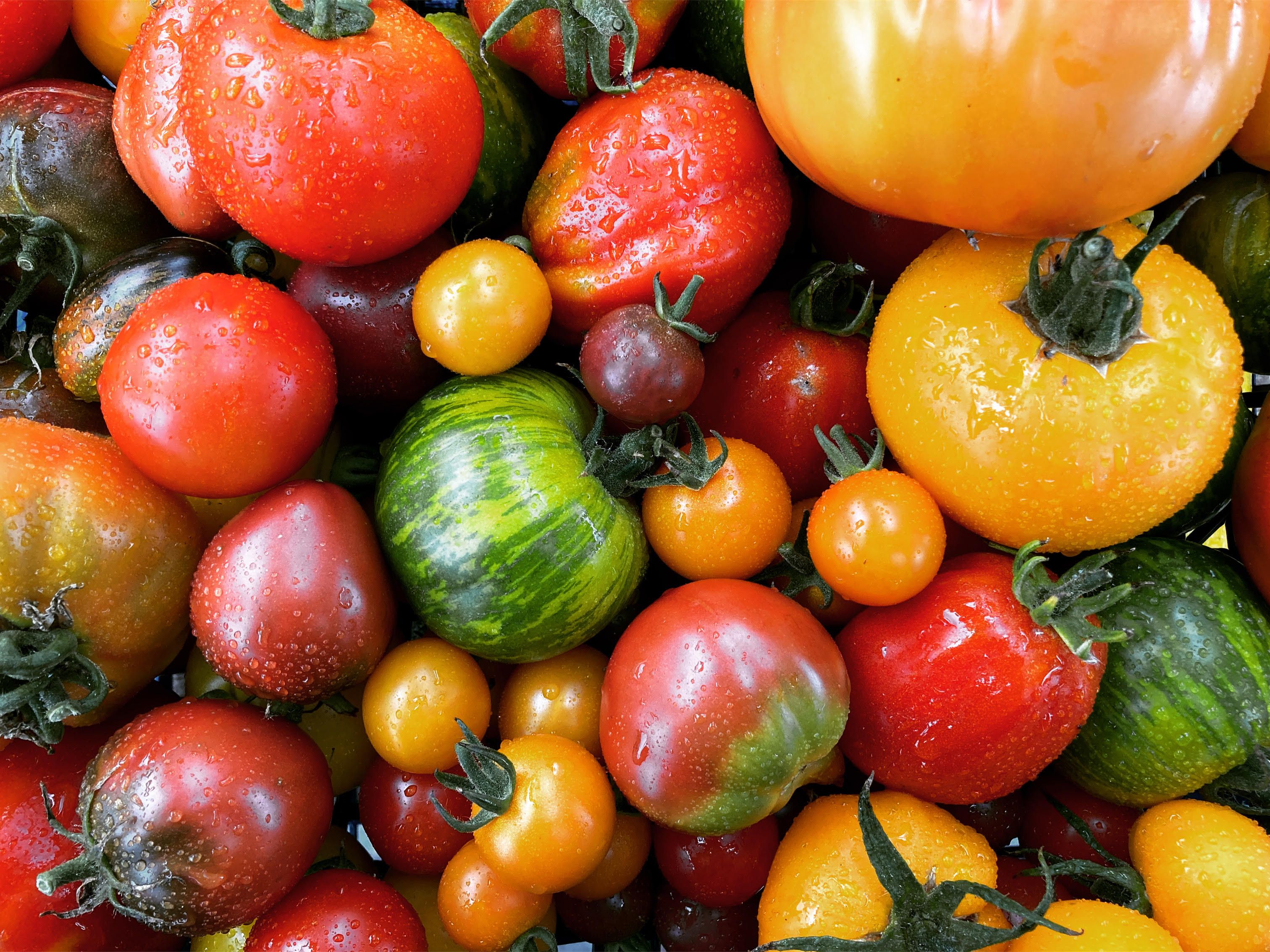
Organic vegetables, fruit & meat - buy online & collect from the farm
AMPNEY BROOK FARM, COTSWOLDS
January meat sale: get 20% off your order by entering the promo code MEATANUARY when you add an item to your basket
Get news from the farm, updates on our produce for sale and find out when we're running events
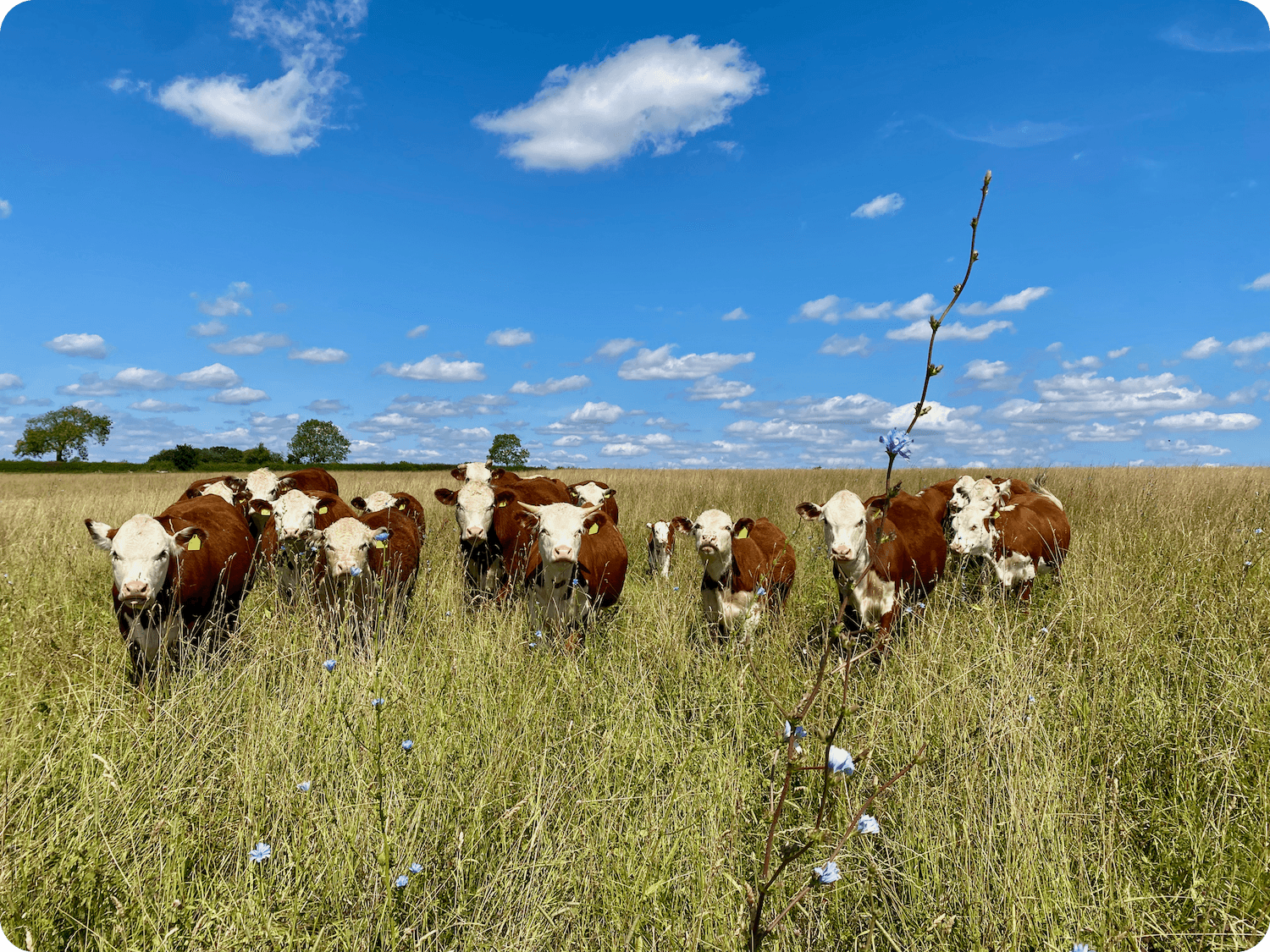
ABOUT AMPNEY BROOK FARM
We are an organic and regenerative farm in the Cotswolds, producing 100% grass-fed beef, population and heritage grain and no-dig fruit, vegetables and salad. We nurture biodiversity and healthy soil, care for our animals to the highest welfare standards and produce nourishing, affordable food for our community.
Our Hereford cattle graze in harmony with wildlife on diverse grassland. Our pigs root and browse in the dappled shade of the woodland. Heritage and population wheat, barley and oats are resilient crops which thrive in our organic system. Our no-dig market garden produces nutrient dense food powered by sunshine.
FIND OUT MORE
ORGANIC & WILD MEAT
We produce beef, pork and venison; buy on our website and collect from the farm.
VEG BOXES
We grow fruit, vegetables and salad using the no-dig method in our poly tunnel and outdoor beds. We sell small and large veg boxes which can be picked up from the farm or Cirencester.
ORGANIC
We don’t use any chemicals on our pasture, arable and market garden.
REGENERATIVE
We want to put back more than we take out from our land, starting with soil
PASTURE FOR LIFE
Our Hereford cattle are certified by Pasture for Life as 100% pasture-fed
COMMUNITY
Cultivating relationships is at the heart of our farming endeavours
